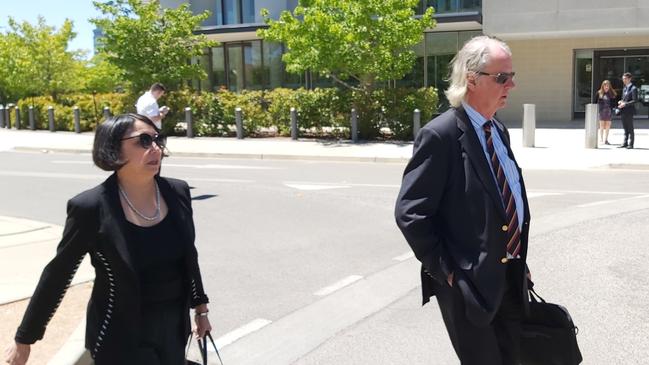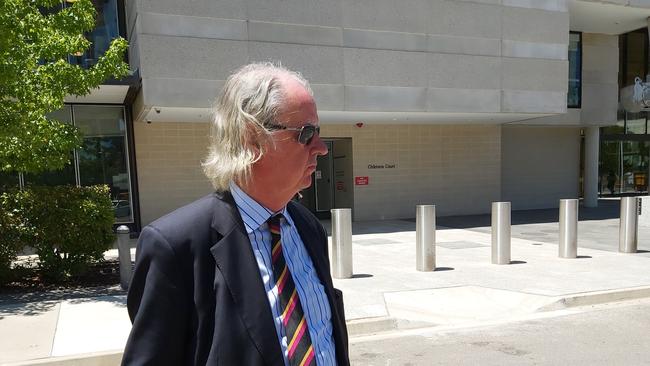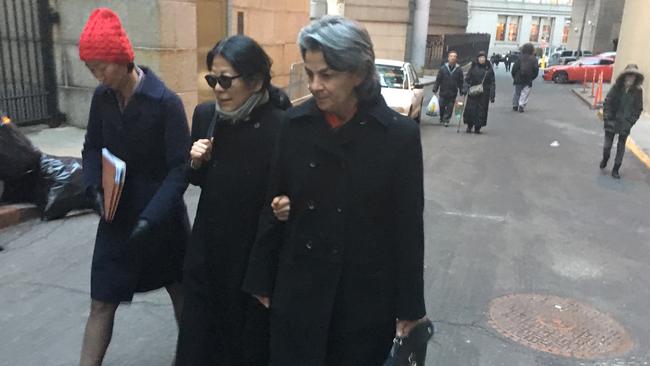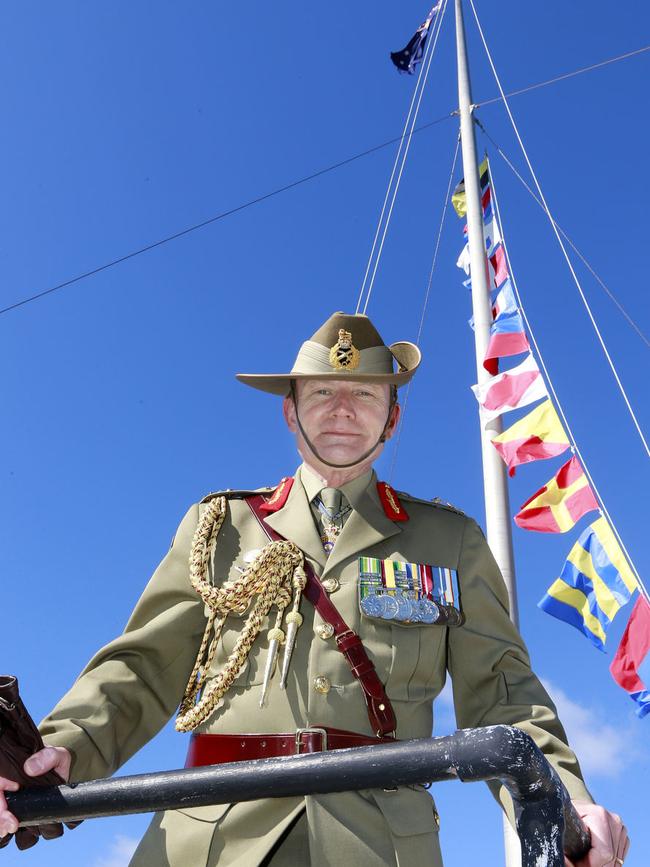Roger Uren, Sheri Yan, ASIO: Intelligence bosses reveal concerns about revealing information in court
Top intelligence bosses have revealed the extent of their paranoia around the prosecution of a retired spy, claiming foreign agents could be lurking around a Canberra court in the hope that someone lets slip a decades-old national secret.

Canberra Star
Don't miss out on the headlines from Canberra Star. Followed categories will be added to My News.
- Notorious youth detainee wanted over armed robbery
- ‘Male prostitute’ and former top bikie back behind bars
- Cops find arsenal of guns at home of ‘Local Hero of the Year’
Australia’s top intelligence bosses have revealed the extent of their paranoia around the prosecution of retired spy Roger Uren, going as far as to claim foreign agents could be lurking around the Canberra’s Magistrates Court building in the hope someone might let slip a decades-old national secret.
Uren, 72, was last year charged with 29 breaches of secrecy laws.
He is yet to enter pleas, and his case has been held up for months after Attorney-General Christian Porter issued a certificate gagging the proceedings, and made moves to have the case dealt with under strict rules to protect national security.


The ACT Magistrates Court has previously heard Uren was charged after 2015 and 2016 after raids on his Canberra home as part of an investigation into his corrupt Chinese wife, Sheri Yan, who served jail time in New York after bribing former United Nations General Assembly president John Ashe.
The raids revealed intelligence documents dating back decades, scattered around his home office.
Uren quit the Office of National Assessment in 2001 and has since worked as a consultant.
Three of Australia’s most powerful spy agency bosses last week swore affidavits urging Magistrate Glenn Theakston to run Uren’s matter under strict security protocols.
ASIO deputy director general of security, Heather Cook, said even though the “techniques and methodologies” detailed in the brief of evidence in Uren’s case are “a number of years old”, “some of the techniques and methodologies used by ASIO at that time continue to have real relevance and use today”.

Foreign intelligence agencies were “willing to expend significant resources” to find out Australian government secrets by having someone sit in open court in the hope a lawyer, judge or court staffer might let slip a national secret, Ms Cook’s affidavit says.
People who learn about the secrets contained in the brief of evidence compiled against Uren could end up being the target of surveillance, coercion or bribery, she said.
Office of National Intelligence deputy head of assessments Gareth Meyer said his agency might suffer “serious reputational harm” among Australia’s allies if they learnt, through Uren’s case, that their expectations for confidentiality were not met.
“If that understanding and expectation of confidentiality is not upheld, I believe there would be serious reputational harm to ONI, which would undermine its ability to, among other things, request or assemble information from domestic and foreign partners,” Mr Meyer said.
Even seemingly-harmless, “historical” or “innocuous” information could prove useful to Australia’s enemies, Mr Meyer said, because they might use it to piece together a better understanding of his agency operates and use that understanding to exploit its vulnerabilities.

Australian Secret Intelligence Service director-general Paul Symon said it was important that “even the most highly-resourced, capable, advanced and innovative foreign intelligence service is unable to access this sensitive information”.
If information about ASIS agents – even those long since retired – became public in Uren’s prosecution, agents might be less willing to risk their lives spying for Australia, Mr Symon said.
“Those agents are only prepared to work with ASIS if they are given credible guarantees that information that might lead to their identity as an agent being exposed is guarded with extreme caution,” he said.
Among the orders made to prevent information from Uren’s case falling into the wrong hands is for it to be kept in a locked filing cabinet in Magistrate Glenn Theakston’s office, and for only a small number of court staff to have access to it.
If moved outside of the ACT court house, the documents will have to be double-sealed and locked in a secure briefcase.
